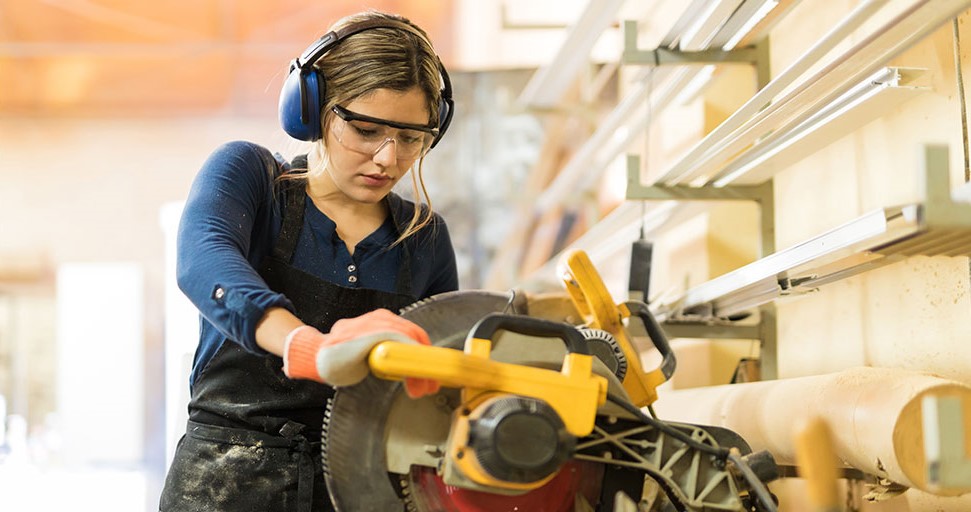Did you hear about the Tradies’ National Health Month in August?
It highlighted plenty of strategies and tips on this important topic to use year-round to protect the tradies in your midst and your business.
Top risks tradies face
St John Ambulance has a handy definition for tradies, saying they include technicians, trade workers, labourers, machinery operators, and drivers.
However tradies rate fourth highest for work-related injuries, says the Australian Bureau of Statistics. About a third of workers are tradies, says Safe Work Australia and the Australian Physiotherapy Association. Yet, tradies account for six out of 10 serious workplace-related injury claims.
Typical injuries include:
- Traumatic joint injuries, often ankle sprain
- Musculoskeletal disorders, including muscle tears
- Repetitive strain injuries, including hand-arm vibration syndrome and to cartilage
- Back pain
- Bone breakages and fractures
- Lacerations and wounds, e.g., nail gun injury
- Dangerous dust-related diseases
- Cancers.
And there are other risks that can lead to fatalities. Mostly, they involve motor vehicles, falls/slips and tricks, exposure to dangerous chemicals or being struck by equipment or objects. Other causes include violence or animals, fires and explosions, too.
Correct manual handling
We can all do with a refresher about best practices for manual handling. Here’s how to do it right:
- Maintain an upright chest posture while handling objects.
- Keep loads close to your body when lifting.
- Avoid twisting or making uncomfortable movements.
- Don’t hesitate to ask for assistance when necessary.
- Whenever feasible, use lifting equipment and aids to transport items.
Find out more from this SafeWork NSW guide, which also goes into detail about hazardous manual tasks. Also check out SafeWork Australia’s website.
Wear PPE
Your workplace and tradies’ vehicles may have a good stock of personal protective equipment (PPE). But use this checklist to see what’s available on site and to assess the condition:
- Goggles or safety glasses
- Dust masks and respirators
- Earmuffs and earplugs
- Gloves
- Face shields
- Coveralls
- Knee pads
- Steel-capped shoes with good tread
- Boot guards/gaiters
- Reflective vests (zip them up, rather than leave them flapping, which can be dangerous around equipment).
- Hard hats. Also add long clothing, sunscreen, and sun hats as extra PPE,
Invest in mental health
As well as first aid courses, there are specific courses that cater for mental health, says St John Ambulance. But don’t offload mental health upskilling to your staff – foster mental health in your workplace. For example, do you have a mental health first aid officer?
According to a recent OzHelp survey, about a third of tradies surveyed say they’d not received any mental health training or support at work. Almost half said they wanted to learn more about helping a friend or coworker having a rough trot. Two in 10 said they wouldn’t seek support even if they needed it. Here are the main reasons tradies said they were stressed out:
- Work pressures
- Family and relationship pressures
- Financial pressures
- Mental health.
The OzHelp survey found that tradies prefer BBQ catchups, mental health and wellbeing training, and screening that are on site.
Women tradies commonly report that foul language, bullying, harassment, and sexist jokes are rife, Australian research shows. Solutions include all-female work teams, networking initiatives, mentoring programs, and women’s sheds. There’s also the SALT organisation, which supports and links tradeswomen.
Consider how your business can be more diverse in its hires. It’s a proven boost for profitability, innovation, better decision-making, attracting and retaining top talent, and more, says Diversity Australia.
Workers’ comp cover
Workers’ compensation insurance is important where your business has employees. Work health and safety (WHS) involves managing risks to the health and safety of everyone in your workplace, including your:
- workers
- customers
- visitors
- suppliers.
Be sure your business abides by workplace health and safety laws and regulations. This includes having workers’ compensation cover. Australian law sets down that employers have a duty of care for the safety of workers at their workplace, and that includes tradespeople.
Aim for strong risk-management policies that identify, minimise, control, or eliminate hazards and risks. Having a robust approach, including site risk assessments, safety equipment, plus regular training, could earn you a premium discount, too. Workers compensation insurance can cover medical costs, rehabilitation, income loss due to workplace injury, and any permanent injury suffered.
Let us review your risk management practices to protect your business against the worst possible scenario.

